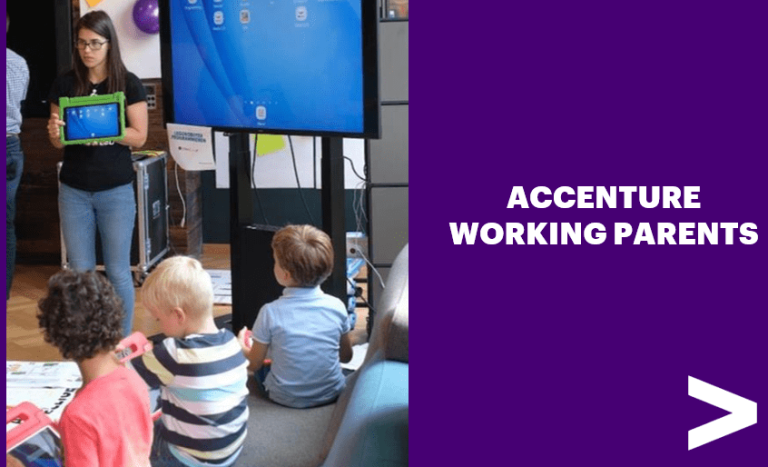
The statutory requirements: maternity leave lasts for 98 days, or 14 weeks and maternity benefit amounts to 80% of the earnings, but no more than CHF 196 per day. Paternity leave lasts for two weeks or 14 daily allowances and the benefit amounts to 80% of the earnings, but no more than CHF 196 per day. MSD provided extra maternity only payments: up to 2 years of service – 100% of pay for 14 weeks and 100% of pay for 16 weeks with 3+ years of service.
The new policy entitles employees to take time off work after childbirth or adoption to look after their child independently of the employee’s gender. It offers leave to natural, adoptive, same/opposite sex partners and single parents. For the birthing parent, parental leave commences on date the child is born. For the non-birthing parent, 16 weeks may be taken in a maximum of 4 installments. During the parental leave, employees are paid 100% of their salaries, regardless of years of service.
The newly introduced policy has received highly positive feedback from the employees as it supports the transition into motherhood/fatherhood. It has a significant positive psychological impact and also fosters Equity & Inclusion as the policy is gender-neutral and covers various types of parenting. This support provided to the employees during this highly sensitive period of time contributes greatly to retention & engagement of employees as well as reinforces the sense of belonging.
This Best Practice was first published in the Gender Intelligence Report 2024.
MSD is committed to achieving the best possible balance between private life, family, and career. Parenthood is a major change for all parents. With only two weeks, MSD non-birthing parents could experience guilt for leaving their babies (and/or their birthing partners) too early. They may not have enough time to establish a strong connection with their baby and assist their partner. This can have long-term effects on their relationships and well-being.
Another challenge was to close the leave gap between employees. Men could be perceived as more available than women in case of birth, and this could cause biases during the recruitment process. Without neutral leave, the societal norm that childcare is primarily the mother’s responsibility gets perpetuated. This can hinder progress towards gender equality and prevent the normalization of shared parenting.
The goals the company wanted to achieve by introducing Gender Neutral Parental Leave were to promote gender equality, ensure that both men and women have equal opportunities, and reduce the gender gap in the workplace. It was also to enhance employee retention, improve job satisfaction and loyalty, and reduce turnover rates. As a result, this initiative aimed to improve employee wellbeing. Allowing all parents to take time off without differentiation supports better work-life balance, leading to healthier, more satisfied, and engaged employees.
16 weeks of paid leave are now offered to all regular permanent employees across all Divisions and all Sites. The policy offers leave to natural, adoptive, same/opposite sex partners and single parents. For the birthing parent, parental leave commences on the date the child is born (112 days in total, including public holidays and weekends). For the non-birthing parent: 16 weeks (calendar weeks including public holidays and weekends) may be taken in a maximum of four installments (with a minimum of two consecutive weeks per installment). The first two weeks must be taken within six months post-birth and the full entitlement must be taken within the first anniversary of the birth or adoption.
“I am incredibly thankful for the company’s understanding and support during this important phase of my life. It allows me to fully focus on the well-being of my newborn child and provides me with the necessary time to bond and nurture a strong relationship with my family. MSD’s commitment to employees’ work-life balance and its recognition of the significance of parental leave demonstrate the progressive nature of our organization. This kind of support is not only helping me personally but it also reinforces my dedication and loyalty to the company. However, I believe that more flexibility could be given to parents when it comes to decide how to take the 16 weeks of parental leave. I would have preferred to benefit in a way that is more optimal for the needs of my family rather than strictly following the policy. I had to add a considerable amount of workload during the weeks before the parental leave started to ensure that all the pending topics were closed and that my backups were up to speed with the pending actions.”
Daniele Biasi, E2E Planning Champion, SCM/MMD
We at MSD are committed to helping mothers and fathers alike to better support their families and truly believe that it leads not only to fostering diversity and inclusion at the workplace but also to enabling our employees to bring their whole selves to work and get the support when it is most needed. As a result, the employees get additional support during their transition to parenthood and can spend more time with their newborns without unneeded worries as they’re paid 100% during the leave. It is highly appreciated by the employees, and we’ve received strongly positive feedback from both new mothers and fathers. As a result, we also see higher engagement rates and positive comments in our semi-annually engagement surveys.
“On November 20, my wife and I became parents to our son Luka. He is our first child, and even though we attended courses for future parents and read specific literature, surely everything about taking care of a newborn was new to us – exciting but definitely challenging. I was lucky enough to benefit from my paternity leave and to experience this new life chapter together with my family. I spent the first two months of my leave during Luka’s newborn stage, and I will also take another month this summer to enjoy his “older baby” period. I think that my paternity leave not only helped me get to know my son better, to support my wife, but also to establish the connection between Luka and me that still helps me to soothe him, cheer him up, and to understand his needs.”
Dzhumber Ugrekhelidze Principal Scientist, Outcomes Research at MSD Switzerland
External surveys (McKinsey) show that gender-neutral parental leave has a positive impact on five areas, including stronger partnerships, getting more comfortable with parenting, building a stronger and lifelong bond with a newborn, supporting the career of your partner, and being a more energized employee. The new policy at MSD is not only gender-neutral but also covers different types of becoming a parent, which is a significant step to providing equal rights and support to young parents.
For more information about this Best Practice, reach out to the authors:
Daria Tyuvina
Director, HR Business Partner
daria.tyuvina@msd.com

Vanesa Calicchio
Specialist, HR Business Partner
vanesa.calicchio@msd.com

Mariama Dicko
Senior Specialist, Supply Chain Management
mariama.dicko@msd.com

MSD Website

NatWest champions working families through their comprehensive initiatives, such as Partner Leave, Phase-Back Program, and a Remote First approach. Uncover how they lead in creating a gender-balanced and inclusive environment that supports employees' specific needs.

Step into ABB's world and witness their groundbreaking gender-neutral parental leave program. Discover how ABB fosters a gender-balanced and inclusive environment, breaking boundaries and paving the way for working families to thrive.

The transition to parenthood is a high-risk time for employees. Read how Vontobel supports and retains female leaders in the 'rush hours' of life.

Bain's 'We Care' programme is changing the culture of care-giving as more men take up flex leave options and extended paternity leave.

The full pay flexibility deal allows new parents to decide how they want to manage the transition back to work.

Accenture's thriving Working Parents' Network attracts 30% men in its membership.

#sharethecare shifts the narrative from ‘caregiving is strictly a woman’s responsibility’ to ‘caregiving is for both parents’. A bold ambition aiming to cultural change.

A new collective employment contract with the binding principles of: Flexible working, healthy work-life balance, equal pay and no discrimination.